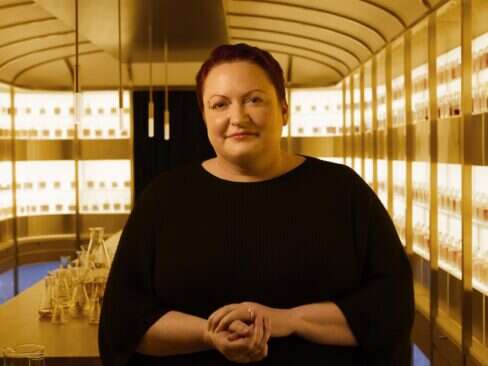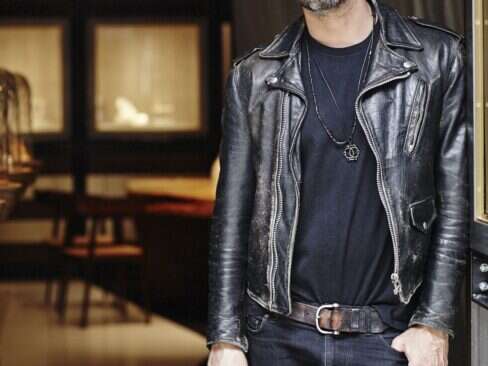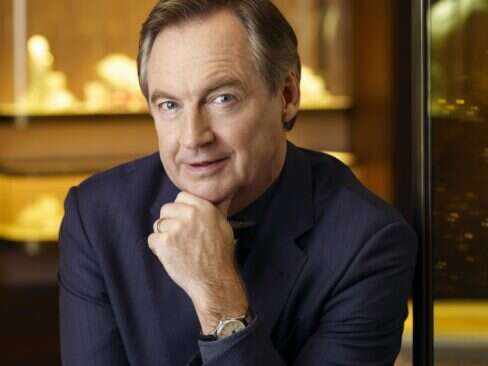
Chairman & CEOEvins Communications, Ltd.
With a clientele that ranges from the famed Halekulani in Hawaii to The Lanesborough in London, from industry leaders and pioneers Exclusive Resorts to Marquis Jet, Mathew Evins has established himself as a respected voice in the luxury industry. Recently Editor-in-Chief Douglas Gollan visited him at Evins Communications’ Madison Avenue, New York headquarters to get his perspective on how the economic slump is impacting the luxe market.
ET: So, Mathew, why don’t we start out talking a little bit about the state of the luxury business?
Mathew Evins: Many economists, marketers and pundits alike firmly believed that luxury and luxury brands were, for the most part, recession proof. They believed luxury was a “state of wealth” and that the wealthy were far more resilient in a challenging economy. Indeed, the wealthy are far more resilient but, as a result of the economic downturn, these high net worth individuals are spending more sparingly, with far less ostentatiousness and far more modesty. They have become more discerning and demanding and have higher expectations than ever before. The current economy has transformed luxury from a “state of wealth” into a “state of mind,” meaning that they think and feel differently about luxury than in the past.
A majority of luxury brands, regardless of sector, have reacted to the current economic challenges by trying to maintain the status quo in order to simply survive or maintain their business, while others have resorted to discounting and sales. The vast majority of these luxury brands are experiencing what I refer to as “luxury attrition,” because, in either maintaining the status quo or resorting to discounting, they are failing to maintain brand cachet, brand experience and brand value.
ET: What can or should a luxury brand do to survive and, ideally, thrive in the midst of the current economic malaise?
Mathew Evins: Those luxury brands that have the fortitude, leadership and vision need to understand that Luxury is no longer merely a “state of Wealth” but has become a “State of Mind;” its not about riches but about enrichment. Luxury is not about need but about desire and passion; it’s not about being acquisitive but about being inquisitive and having meaning; it’s not about lifestyle but about “The Art of Living.” Today’s high net worth and ultra high net worth individuals do not merely aspire, but rather, they seek to be inspired, taking a journey of connoisseurship, meaning, and passion for the purpose of personal fulfillment and self-realization.
There are a number of luxury brands, like Hermes, that are excelling and thriving because and in spite of the “New Economy,” for they understand the transformation of the luxury consumer and realize that the success of their business is not dependent upon the mass-affluent, but upon catering to, connecting with and experientially engaging high net worth and ultra high net worth individuals. I refer to brands such as Hermes as “Legacy Luxury” brands, for they define and represent that which is extraordinary and exceptional, inimitable and irreplaceable, incomparable and superlative.
ET: What differentiates a “Legacy Luxury” brand from all others?
Mathew Evins: “Legacy Luxury” brands have the perception of being inimitable and irreplaceable, extraordinary and exceptional, intimate and personal; possess heirloom and folkloric attributes, characteristics and qualities. They do not merely satisfy – they inspire; they do not merely exceed expectations – they transform them. “Legacy Luxury” brands possess and provide uniquely emotive and enriching qualities, they are resonant with connoisseurship and meaning, and they represent a “shared passion,” engaging clientele on both a visceral and an emotional level. “Legacy Luxury” brands are imbued with a storied, rich history – a cultural folklore that can be shared by and amongst their clientele as if it were their own. Ultimately, “Legacy Luxury” brands have a significance and a value that transcends cost, because they represent a means to express or realize one’s individuality.
ET: You know, obviously you represent mostly high-end clients. Using one of them as an example, is there any case study that you could point to that you’ve done with one of your clients to take advantage of some of the things you’re talking about?
Mathew Evins: What we do for our clients is so proprietary that we’re probably one of the only agencies that actually doesn’t use case studies to promote ourselves, because it would be antithetical to what we’re trying to achieve. What I can say is that we counsel and help our clients to provide an experience and a value that transcends cost, to engage clientele emotionally as well as intellectually, and never to dilute, diminish or discount their brand cachet, brand experience and brand perception for the sake of revenues.
ET: How do you see social networking evolving? And, how can you make it a credible communication channel for your type of clients?
Mathew Evins: For the time being, social media is not a curated, qualified or vetted medium for peer-to-peer recommendation amongst high net worth and ultra high net worth individuals. Until and unless social media contributors are able to be authenticated and validated, their expertise, knowledge and point-of-view will be perceived as dubious and circumspect by high net worth and ultra high net worth individuals, for there is no way to determine if social media contributors are like-minded peers or trusted authorities.
ET: Could you name maybe a handful of your current clients?
Mathew Evins: We have represented a number of our clients for more than a decade, which attests to the caliber, diligence, quality and success of our team and our work. We have had a partnership with the Hotels & Resorts of Halekulani as well as with Maker’s Mark Bourbon for more than sixteen years; we opened The Lanesborough in 1991 and launched Marquis Jet in 2001, and continue to represent them today. We have worked with Leica Camera for seven years, Vitra Furniture and Soucie Horner Design for more than five years and, presently, we are launching the Ulysse Nardin Chairman Cell Phone. Over the years, we have also represented many luxury fashion brands, including Valentino and Vera Wang; cosmetics brands, such as Hommage and Kanebo; hospitality brands including as Preferred Hotels & Resorts and Rosewood Hotels & Resorts; and such jewelry brands as Chaumet and Damiani.
ET: You and Peter Shaindlin, COO of Halekulani Corporation, conceived of and helped create the Vera Wang suite partnership at the Halekulani. It’s interesting bringing a fashion designer together with an iconic hotel. Talk a little bit about the thinking behind that partnership and what role partnerships play in terms of luxury marketing communications.
Mathew Evins: Before considering or embarking on a partnership between two iconic brands, one always has to ask the question if such a partnership is for business reasons or for “PR” reasons, because the two are not necessarily in alignment, and can be antithetical. In the case of Halekulani, integrity of purpose and integrity of experience is always both sacrosanct and paramount, regardless of the business opportunities and ramifications. Every great hotel has their specialty suites, with the accoutrements, bells, whistles and hyperbolic fanfare that usually accompany them. What the industry didn’t have until the partnership between Halekulani and Vera Wang, is a suite created around and conducive to a “lifestyle” by an authority on such “lifestyle.” Peter and I realized that what did not exist was an intimate “suite” experience conducive to rediscovering, renewing and revitalizing what brought couples together in the first place; passion, romance and sensuality, which are often forsaken or forgotten in our frenetic, stressful and consuming world.
That was the initial premise around bringing Halekulani and Vera Wang together. The biggest hurdle was how to create a unique suite ambiance that was organic and relevant to the Halekulani aesthetic, ambiance, experience and sensibility while embodying and being representative of the Vera Wang aesthetic, experience and sensibility. This was the challenge, the opportunity and the solution. And Peter had the vision and the courage to realize it.
The results speak for themselves, for no specialty suite in the luxury hospitality industry has received more media attention and recognition than the Vera Wang Suite at Halekulani and, more importantly, the suite’s ADR and occupancy have been and continue to be substantially greater than it was for the suite product that previously occupied the space. The partnership was a far more successful, both functionally and financially, then we would have ever thought, and is another testament to the leadership and iconic status of both brands.
In terms of partnerships between luxury brands, especially iconic ones, it is imperative that the various prospective partners embody shared vision, values and goals, and that their coalescence or confluence is organic, symbiotic and synergistic. It is only with this type of alignment that the benefit of the partnership will be exponentially greater than the combined benefit of the individual partners. That is the definitive litmus test for a partnership between luxury brands. Unfortunately for the vast majority of luxury brands and for their clientele, such partnerships are designed more for purposes of buzz, conversation, exposure and cross marketing than to create an abiding, enduring and a paradigm shift legacy.
ET: Earlier you were talking about the importance of legacy of luxury brands and the role of heritage. Yet, I’d say one of the success stories I always associate you with is Marquis Jet. Marquis Jet, when your agency started working with them and helped launch them, was a new company though they had already created a pretty strong position in their marketplace. So, what’s the difference when you’re tackling somebody who is new and doesn’t have that legacy? What are the things that are important for a brand like that to establish them in the market?
Mathew Evins: I think you start with examining and determining the reason and the rationale for entering the marketplace, the opportunity, viability and sustainability of the business segment, as well as the benefit, the caliber, the experience, the promise and the value proposition for the consumer. Lastly, it is imperative to determine if the offering is innovative and pioneering, defines best-of-breed, and represents a paradigm shift. Ultimately, it is these attributes and qualities that are the definitive differentiators in the marketplace.
Our goal for Marquis Jet was to create awareness and understanding, yet let the benefits and experience speak for themselves and, in so doing, to establish Marquis Jet as the singular or defining brand within the industry. We were able to achieve these goals because what Marquis Jet did was redefine the private aviation model or paradigm, just as NetJets had done before it, by innovating and pioneering pre-paid private jet time in the form of an hourly private jet debit card – specifically, “NetJets 25 hours at a time.” Marquis Jet made private aviation far more accessible and approachable, and far less intimidating and overwhelming, while delivering and providing an unparalleled level of quality, reliability and service, all on a turnkey basis. Marquis Jet demystified and took the capriciousness and the vicissitudes out of private aviation, while simultaneously delivering a quality of experience and performance that set the standard for all others to come.
High net worth and ultra high net worth individuals place a tremendous value on innovators, pioneers and legacies, like Marquis Jet, that are best-of-breed, exemplify an experience like no other, and have a sacrosanct commitment to excellence. These individuals are not merely acquisitive of iconic brands like Marquis Jet, but they are making an investment in them where the return on investment is the facilitation of their lives, both personally and professionally, as well as the fulfillment and realization of their pursuits.
Companies like Marquis Jet provide us with the reason and the opportunity to pioneer or redefine an industry, as well as to connect with and engage discerning individuals who will accept nothing less than the best and the finest, and who choose brands, products and services because of the benefit, experience, significance and value they bring to their lives. Legacy need not necessarily be something that can only be achieved over decades. The best legacy brands have always achieved their position in the pantheon of brands by forging a new path or redefining their sector, setting the standard by which all others are measured, as well as by being the best and the finest, not just for a period in time but for time in memoriam.
ET: As I think about the Lanesborough and Halekulani and Marquis Jet, a lot of your clients seem to have the common thread that the ownership takes a long-term view as opposed to quarter by quarter. Is it possible to have a successful luxury company and run it like General Motors, quarter by quarter, adjusting everything to meet the financial market’s expectations?
Mathew Evins: Yes and no. For luxury and legacy brands to succeed, they always have to have one eye on fiscal responsibility and fiscal performance, while concurrently taking into account their consumer’s desires, expectations and state-of-mind both presently and in the future. What it comes down to is being a strong and visionary leader with the foresight and pragmatism to avoid making quixotic, rash or reactionary decisions, which may be beneficial for the short term, but are deleterious long term. It is also imperative to grow, deepen and constantly nurture the relationship between the luxury brand and its most financially valuable clientele, and always imbuing it with a sense of discovery, surprise and delight. For in the world of luxury, let alone the world as a whole, everything is cyclical and will come full circle when circumstances warrant, the forces are aligned and the time is right.
ET: Anything else that you’d like to add or talk about, or are there any other issues that you think are of interest?
Mathew Evins: I think this is a time for great leaders to come to the forefront — for our thought leaders to emerge. It’s a time to rethink how we market, to whom we market and with whom we market — whether it’s media partnerships or brand partnerships — because it is all about engagement and experience. As brand leaders, we need to rethink how we engage our customers, how we transform an audience into a constituent and how we organically catalyze constituents to become advocates and ambassadors.
If we can truly engage and empower our customers, anything is possible. That is both the epiphany and the Holy Grail of luxury marketing. When I am asked what is the future of luxury branding and marketing, I need look no farther than the examples of such icons of luxury as Alain Wertheimer, George Raphael, Jean-Louis Dumas-Hermès Joel Rosenthal, Stanley Marcus and, of course, my mother Marilyn Evins, for these individuals set the definitive standards that all luxury marketers, both present and future, should strive to achieve or emulate. While affluence may ebb and flow, society will always perceive Luxury far differently from those who aspire to it, those who can afford it, and those who are entrenched in it. Indeed, Luxury will always be in the eye of the beholder and a function of one’s socioeconomic status.
 Halekulani On The Beach, Waikiki
Halekulani On The Beach, Waikiki












